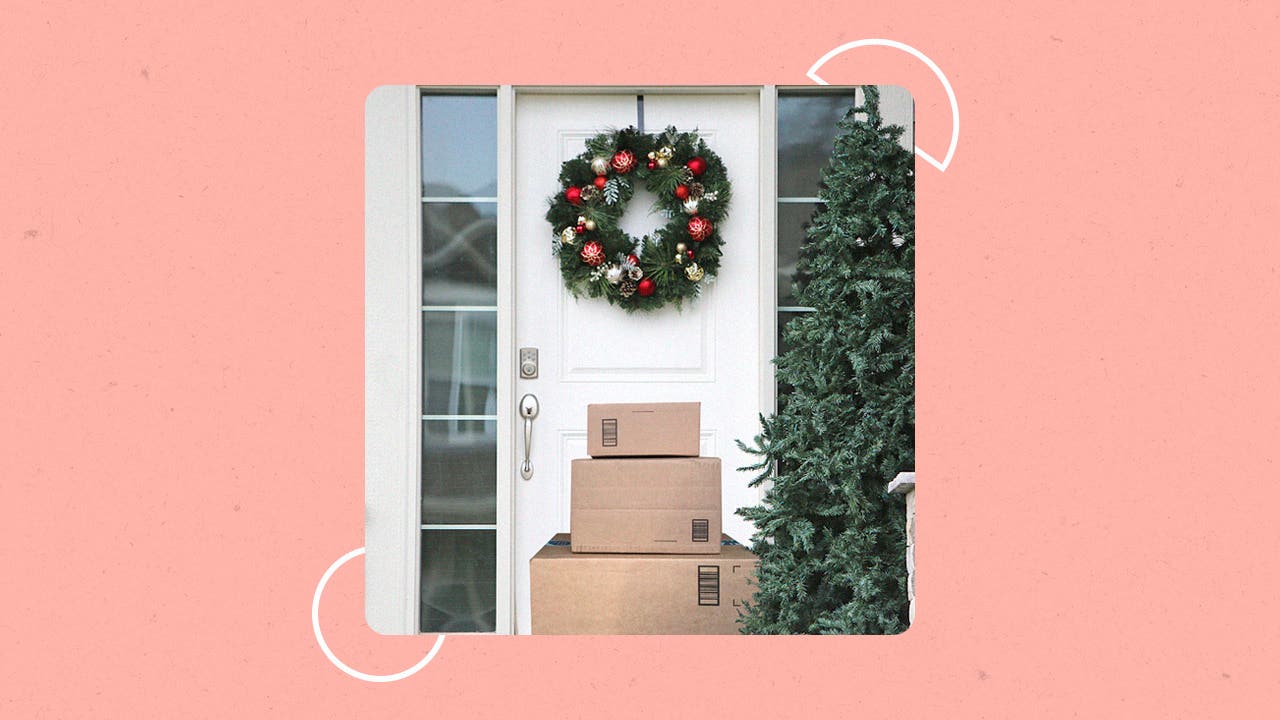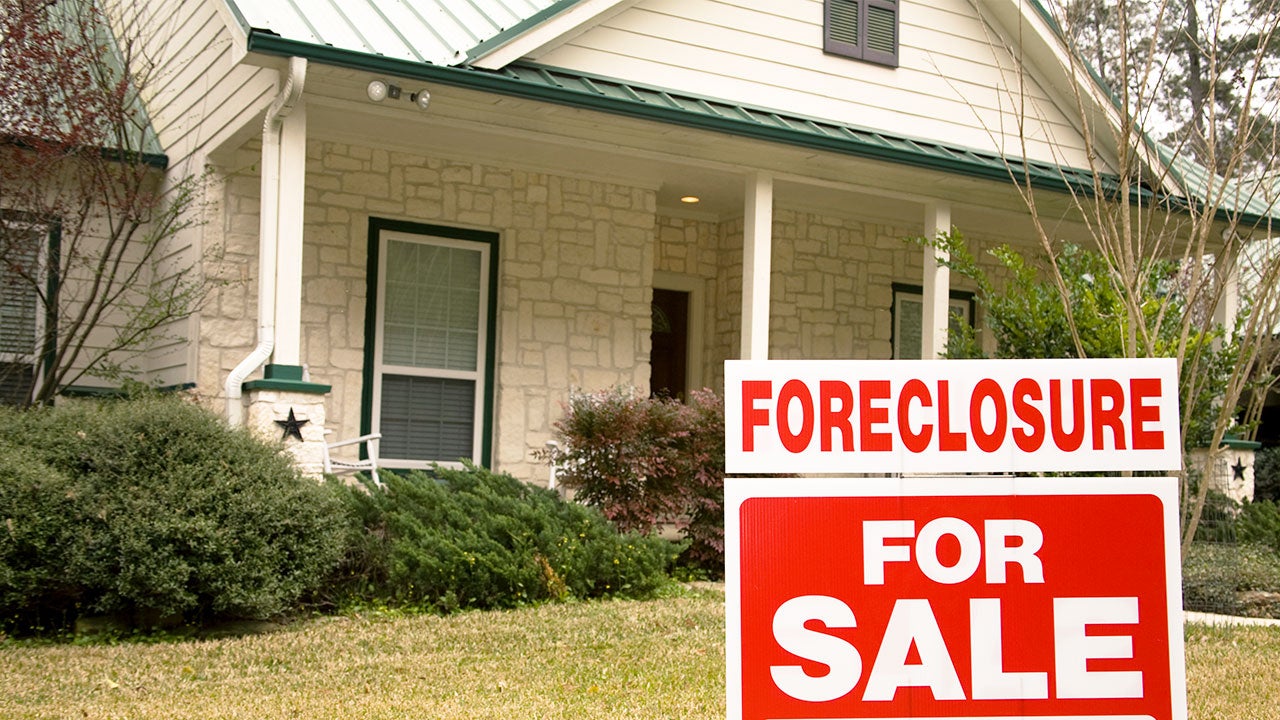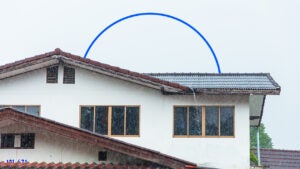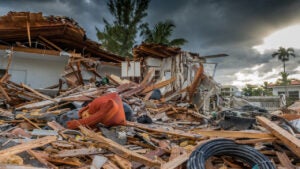How to protect your home from porch pirates during the holiday season

Making leftover turkey sandwiches and hanging twinkly lights aren’t the only traditions sweeping American households this time of year. Ahead of the holiday madness, many people take advantage of early-season online shopping sales — even before Black Friday and Cyber Monday. Bankrate’s 2024 Early Holiday Shopping Survey found that 48 percent of U.S. adults began shopping for gifts in August, September or October, and 42 percent expected to make most of their purchases online. Online shopping might mean scoring better deals and saving time, but it comes with the added risk that your package could get swiped.
Knowing how to protect yourself from porch pirates can help ensure that your gifts end up in the hands of family and loved ones — and out of the hands of thieves.
- Porch pirates stole more than $12 billion in packages last year. (Security.org)
- Online shopping generates more than 22 billion packages, more than 60 per person. (Security.org)
- 1 in 4 Americans have been victims of porch piracy at some point in their lives, and 58 million had a package stolen in the past 12 months. (Security.org)
- The average value of a stolen package is $204. (Security.org)
- Almost 1 in 3 (33.2%) of stolen packages were from Amazon. (Safewise)
- It’s estimated that 260,000 packages are stolen every day. (Safewise)
The rise of porch piracy
Although online shopping isn’t a novel concept, its popularity has soared in recent years. Spurred by the COVID-19 pandemic, shoppers turned to online storefronts for everything from groceries to new sneakers. And even after shoppers could return to brick-and-mortar stores, online shopping remained a popular choice. In fact, ecommerce revenue in the U.S. is expected to top $4 trillion in 2024.
Online shopping can be a convenient solution to the chaos of holiday gift-buying, but it also raises the risk that your gifts will be stolen before you’ve even had the chance to wrap them. Enter the opportunistic porch pirate.
What is a porch pirate?
A porch pirate is someone who steals a package from a doorstep before the recipient can bring it inside. Or, they open the package on the spot and steal its contents. They might follow a delivery truck or cruise through neighborhoods, looking for their next target.
Porch piracy is much less involved than a full-on home break-in, which makes it an appealing choice for petty criminals seeking a quick grab. According to Safewise’s Package Theft Survey, stolen deliveries cost Americans around $16 billion in 2023. A separate report by Security.org estimated slightly less at $12 billion.
Top 10 cities for porch pirates
Porch pirates tend to have a few favorite cities. The same study by Safewise named the following hot spots for porch piracy:
- New York, New York
- Philadelphia, Pennsylvania
- Chicago, Illinois
- Washington, D.C.
- Houston, Texas
- Atlanta, Georgia
- Charlotte, North Carolina
- Dallas-Forth Worth, Texas
- Boston, Massachusetts
- Cleveland, Ohio
Doorstep package thieves seem to have a penchant for swiping Amazon deliveries more than other package types. This could be because the online juggernaut has become the largest package deliverer in the country, dethroning UPS and FedEx.
| Retailer or shipping handler | Percentage of all packages stolen |
|---|---|
| Amazon | 33.2% |
| United States Postal Service | 18.3% |
| FedEx | 17.1% |
| UPS | 15.7% |
| Grocery delivery | 6.9% |
| Hello Fresh | 3.7% |
| Other | 5.1% |
What to do if your package is stolen
How you handle package theft depends on how your package was stolen. If it was snatched from your porch, your first move should be to contact the retailer — not the shipping company. The retailer will likely have its own policy when it comes to stolen items. Typically, you can request a refund or replacement. Amazon, for example, offers customers an A-to-Z guarantee, which may cover up to $2,500 for items purchased from a third-party seller. If the retailer cannot help you but your shipment was insured, you may be able to recoup some of the cost by contacting the shipping company.
A porch pirate may take things a step further, and break into your home. In that case, you’d want to file a police report with local authorities. If the thief smashed a window, broke a fence or pried open a garage door to get to your belongings, you may want to contact your home insurance provider and file a claim for the repairs (after contacting the police, of course).
The personal property arm of your home or renters insurance policy technically extends to unopened packages, but note that filing a claim may not always be cost-effective. Consider your deductible and your home insurance rate beforehand. If the value of the stolen package is close to or less than your deductible, you might be better off contacting the retailer for a refund or replacement.
Filing a home insurance claim will likely raise your rate, which may not make much financial sense depending on what your package was worth. If a highly valuable package was stolen, you might want to consider filing a claim. However, personal property coverage typically has limits on the value of the items it will cover. So, unless you added a scheduled personal property endorsement, your policy may not cover expensive items.
If you live in an apartment, you might want to take extra steps to secure your packages. Apartment dwellers are twice as likely to experience package theft compared to those who live in homes, according to Security.org.
How to stop porch pirates
Even if you live in an area with high levels of porch piracy, there are still several steps you can take to protect your packages this holiday season. Consider the following strategies:
- Install a doorbell security camera: A camera can’t stop a thief in their tracks, but it may act as a strong deterrent. Plus, if you catch theft on camera, it could be useful evidence if you decide to file a police report and home insurance claim.
- Consider motion-activated floodlights: Similar to a camera, bright, motion-activated lights could scare off porch pirates.
- Choose discrete delivery spots: In the delivery notes, you could request to have your package dropped off behind a hedge, under a doormat or somewhere else that is not visible from the road.
- Track and schedule your deliveries: Many shipping companies provide up-to-date tracking information for inbound packages. When possible, plan to be home to receive your deliveries.
- Require a signature: With some valuable or information-sensitive packages, you can request a signature, ensuring you will be home when it arrives.
- Choose pickup instead: The U.S. Postal Service and many third-party shipping companies allow you to select a package to be held at a local facility rather than dropped off at your door. If you’re expecting something valuable, this may be a better option.
- Make it look like you’re home: Leaving a light on or setting up automatic lights could give the illusion that you are home. If it looks like you’re home, a thief may be less likely to target your house.
- Ask your neighbors: If you’re comfortable doing so, you could ask a neighbor to walk over and grab the package for you if you know you won’t be home for a while after it’s delivered.
Other common holiday-related insurance claims
The holidays can be a time of joy, but mishaps and accidents still happen. A standard home insurance policy will cover some holiday-related incidents — but not all. If you plan to host people at your home, you might want to double-check your liability limits. Or, if you received a valuable gift this year, like jewelry or art, you may want to consider scheduled personal property coverage.
Here are some common scenarios where your home insurance policy might cover holiday mishaps:
- Injuries and property damage: Fun-filled gatherings make the holidays enjoyable, but they can lead to events that leave you legally liable for injuries or property damage. A rowdy reveler could take a tumble down your stairs, an errant bottle rocket could set your neighbor’s yard ablaze or your feisty pup could nip a caroler. Personal liability coverage typically starts around $100,000, but you may want to review your policy to assess your coverage limits.
- Fires: Holiday cooking, Christmas trees and outdoor lighting all pose a fire risk. Your dwelling and other structures coverage should pay to repair structural damage caused by a house fire. Your personal property coverage will pay for personal items destroyed, up to your policy limits, and additional living expenses coverage could pay for any extra costs you incur if your home is not habitable following an incident.
- Credit card theft: Holiday credit card theft may be increasing due to the prevalence of shopping online. Most standard homeowners policies include around $500 in coverage to help pay for items purchased with a stolen credit card.
- Identity theft: If a porch pirate steals a package with sensitive personal information, you may be at risk for identity theft. Many insurance companies sell identity theft endorsements that can cover costs you incur due to a stolen identity, including identity restoration services.
Bottom line
Taking steps to limit a would-be thief’s chance to steal your packages can mean a brighter holiday season. Still, if a package does get stolen, contacting the retailer is a great first step in the majority of cases. For more valuable packages, you might consider filing a police report and a home insurance claim. However, keep in mind that a claim could cause your insurance rate to rise.
Why we ask for feedback Your feedback helps us improve our content and services. It takes less than a minute to complete.
Your responses are anonymous and will only be used for improving our website.
You may also like


Summer home prep: How to avoid costly damage and insurance claims

How to prepare your home for hurricane season

How to protect your business from ransomware


